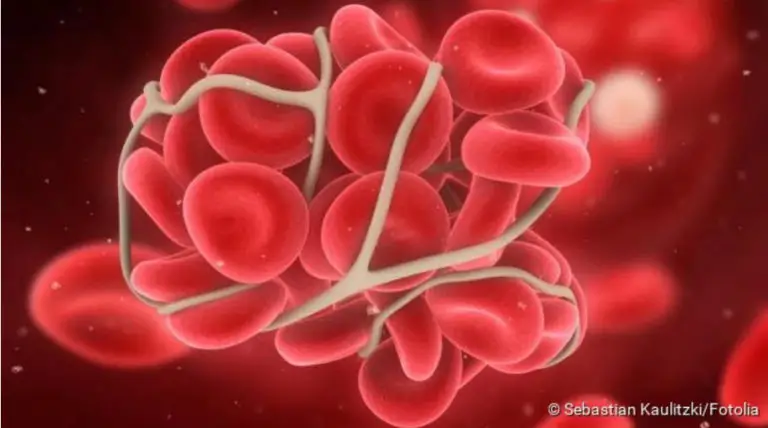Irritable bowel syndrome (IBS): symptoms, causes, treatment
Irritable bowel syndrome (IBS): symptoms, causes, treatment
An irritable bowel is based on a functional disorder of the intestine. Typical symptoms are abdominal pain, flatulence and diarrhoea or constipation. They often intensify under stress. The disease can be very stressful, but it is not dangerous. For a reliable diagnosis, the doctor must exclude other possible causes. Here you can read all the important information about symptoms, triggers and treatment options for irritable bowel syndrome.

Irritable colon: short overview
- Most common symptoms: Abdominal pain, diarrhoea and/or constipation, flatulence
- Possible causes: Disturbed barrier function of the intestinal wall, disturbed intestinal activity, increased immune activity in the intestinal wall, increased perception of pain
- Exclusion diagnoses: inflammatory bowel diseases, food intolerances, gastrointestinal infections, gynaecological causes must be excluded for the diagnosis of an irritable bowel
- Treatment: always individual treatment concept with medication, herbal remedies, homeopathy, probiotics, change of diet, stress reduction
Irritable bowel syndrome: symptoms
With an irritable bowel (irritable colon) the intestinal function is disturbed. Therefore the stool changes: patients often suffer from diarrhoea or constipation.
In some patients, however, the bowel movement is unchanged. They mainly suffer from pain or flatulence, an inflated belly and outgoing intestinal winds. However, these symptoms also frequently occur in combination with diarrhoea and constipation.
Irritable bowel symptoms: The four types of disease
Depending on which symptoms are in the foreground, irritable bowel syndrome is divided into four types of disease: Diarrhea type, constipation type, pain type and bloating type. Besides these four main forms, mixed types also occur. In addition, one type of disease can also change into another or they alternate. Diarrhoea and constipation, for example, can even occur on the same day.
The following additional irritable bowel symptoms are also common in all four types of disease:
- Feeling of fullness
- Feeling that the bowel does not completely empty during defecation
- Mucus deposits on the stool
It is also typical for an irritable bowel syndrome that the various complaints improve after bowel movement.
Irritable bowel pain
Abdominal pain is a major symptom of irritable bowel syndrome. The pain can occur in different places in the abdomen and can have different characteristics, for example:
- continuous burning or stabbing pain
- rather cramping pain in waves
- Stitch-like pain
- dull pain, like a constant feeling of pressure in the lower abdomen
The abdominal pain in irritable bowel syndrome is caused on the one hand by the irritated intestinal mucosa and on the other hand by the stretching of the intestinal wall due to the increased gas formation. The intestinal musculature then reigns with contractions.
Diarrhea with irritable bowel syndrome
In patients with irritable bowel syndrome of the diarrhoea type, the stool is very soft to liquid. The number of bowel movements increases to more than three per day. Some irritable bowel patients with diarrhoea also suffer from a sudden, strong urge to defecate. They therefore hardly dare to move further away from a toilet.
Constipation with irritable bowel syndrome
Conversely, symptoms of constipation can occur in irritable bowel syndrome. Affected persons have very hard stool, which is reminiscent of sheep droppings in shape. These patients can often only go to the toilet three times a week or even less frequently.
Flatulence and bloating in irritable bowel syndrome
Every healthy digestion produces gases in the intestines. In irritable bowel syndrome, however, they can form in excess due to disturbed bowel movements and food utilization. This is particularly unpleasant for the patients, as their intestinal wall reacts more strongly than usual to the stretching stimulus caused by the gas bubbles. Cramp-like abdominal pain is often the result.
If the intestinal winds cannot escape sufficiently, an inflated belly forms, which can be distended like a drum and hurts.
Other changes in bowel movement
Although the various symptoms usually improve after bowel movement, some irritable bowel patients find the bowel movement itself painful.
In addition, many sufferers have the feeling that the bowel could not be emptied properly. This tempts some people to use laxatives. However, such drugs do not help and may even increase the irritation. If laxatives are really necessary, they should be considered as a short-term solution because of the possible side effects.
Irritable bowel syndrome is often accompanied by mucus deposits on the stool.
Feeling of fullness
Regardless of whether patients with irritable bowel syndrome have diarrhoea or constipation, they often suffer from a permanent feeling of fullness. This usually improves after bowel movement, but can also occur when the affected person has not eaten any food at all and the bowel is relatively empty.
Risk of confusion with other diseases
The symptoms of irritable bowel syndrome are unspecific. This means that they also occur in a variety of other diseases. Before the diagnosis of irritable bowel syndrome is made, these must therefore be excluded. Possible other causes for the complaints are
- Food intolerances, also against lactose, fructose or gluten
- Inflammatory bowel diseases such as ulcerative colitis or crohn’s disease
- Gastrointestinal infections
- Gynecological diseases, including ovarian cancer
Heads up! Misleading symptoms
The following symptoms are not typical irritable bowel symptoms. A rapid medical examination is necessary for them, as potentially dangerous diseases may be behind them.
- Diarrhea, mainly occurring at night
- Fever (acute or chronic-recurring)
- Blood in the stool
- Strong unwanted weight loss
Irritable bowel syndrome: causes and risk factors
There are numerous hypotheses on the development of irritable bowel syndrome, but there is little reliable evidence for them.
However, scientists have been able to identify a whole range of typical changes in the intestines of those affected. However, these changes do not only occur in irritable bowel syndrome, but also in chronic inflammatory bowel disease, for example. These include:
Disturbed intestinal peristalsis (motility disorder)
It is suspected that in irritable bowel syndrome the natural movement of the bowel is disturbed. This means that the movements for transporting the digested food do not run optimally.
The peristalsis of the intestine is regulated by an independent nervous system, with which the intestinal wall is equipped. This is also known as the “belly brain”.
The abdominal brain detects when food enters the intestines and stretches the wall. Together with the messenger substance serotonin, the intestinal nervous system controls digestion. It stimulates the intestinal muscles to alternately tense and relax.
In irritable bowel syndrome, the nervous system gives incorrect instructions to the intestinal muscles. As a result, the muscles contract too quickly, too slowly or at the wrong moment, or they no longer relax properly. The food pulp is therefore transported too quickly in some patients. Then not enough water can be removed from the colon. The result is diarrhoea.
The opposite is also possible: If the muscles move too slowly, a blockage can occur. Irritable bowel cramps, in turn, are caused, among other things, when the muscles contract too much and for too long or do not relax properly.
Increased permeability of the intestinal mucosa
An unnaturally high permeability of the intestinal mucosa can also trigger irritable bowel symptoms. In the intestinal mucosa, normally adjacent cells are closely connected to each other by a kind of tight junction. They seal the connection between the cells tightly so that no foreign substances or pathogens can pass between the cells.
As long as these adhesive bridges between the cells are intact, the entirety of the intestinal mucosa cells forms an effective barrier. It prevents foreign substances from entering the body uncontrollably from the intestinal tract.
In people with irritable bowel syndrome, these adhesive bridges break down more quickly than normal. As a result, the cells are no longer so firmly connected to each other, which weakens the barrier function of the intestinal mucosa. For example, foreign substances or pathogens can penetrate the intestinal mucosa more easily and trigger an immune reaction there.
Increased immune activity in the intestinal mucosa
In tissue samples of the intestinal mucosa of affected people there is an increased immune activity. For example, the mucosa contains an increased number of immune system defence cells and their messenger substances. Why the increased activity occurs in irritable bowel syndrome is not yet known.
Infections of the gastrointestinal tract as a cause of irritable bowel syndrome
Several studies show that an irritable bowel can sometimes be the result of a gastrointestinal infection. In particular, an irritable bowel with severe diarrhoea then occurs. Certain bacteria, such as Campylobacter jejuni, may be responsible for this more often than other species. However, only about one in ten cases of irritable bowel can be attributed to a previous gastrointestinal infection.
Disturbed intestinal flora
A disturbed intestinal flora can also contribute to an irritable bowel. If the natural mixture of beneficial bacteria in the intestine is out of balance, this can impair intestinal function and promote increased gas formation. Causes for a disturbed intestinal flora can be drugs such as antibiotics, but also gastrointestinal infections.
Various intestinal bacteria can help with irritable bowel syndrome when taken orally, such as Bifidum MIMBb75.
Disturbed serotonin balance
The serotonin balance could also be disturbed in irritable bowel syndrome. The messenger substance serotonin is responsible, among other things, for how pain is perceived. If the nervous system of the intestine is activated in an irritable bowel, it cannot optimally regulate how much messenger substances it releases. It can happen that affected people perceive their intestines more than usual and feel pain.
Stress as trigger and amplifier
Whether it is anxiety, nervousness, anger, grief or work stress: under psychological stress, irritable bowel symptoms often worsen. If the stress subsides again or one relaxes in a targeted manner, the symptoms usually improve as well.
Acute stress has been shown to cause changes in the gastrointestinal tract. Gastric juice production increases, intestinal movements increase and the local immune reaction in the intestine changes.
However, people react very differently to stress. While some affected people have developed methods to deal with stress, others suffer enormously from the psychological and physical consequences.
Connection with concurrently occurring diseases
There are some diseases that often occur together with an irritable bowel (comorbidities). It is possible that patients with these diseases are more likely to develop irritable bowel syndrome. These diseases include:
Irritable bowel syndrome: examinations and diagnosis
The diagnosis of irritable bowel syndrome is a so-called exclusion diagnosis. This means that the doctor must first rule out other possible causes of the symptoms before irritable bowel syndrome can be assumed.
The right person to contact if irritable bowel syndrome is suspected is a specialist in internal medicine who specialises in diseases of the digestive tract: a gastroenterologist. At the doctor’s appointment, the doctor will first ask about your current complaints and any previous illnesses (anamnesis). The doctor might ask you the following questions, for example:
- Where exactly do you have pain and in which situations does it occur?
- Do you have diarrhoea or constipation?
- Have you noticed a connection between pain and certain foods?
- Do you currently find yourself in stressful living conditions?
- Have you noticed blood in your stool, do you have a fever and have you lost weight unintentionally? All this would be untypical for irritable bowel syndrome.
In many cases it is useful to keep a dietary record and diary of the exact symptoms and discuss the results with the doctor. In particular, it can often reveal a link between certain foods and the symptoms. There are also special questionnaires for irritable bowel syndrome.
Physical examination
The symptoms of irritable bowel syndrome primarily affect the digestive tract. Therefore, the abdominal cavity is the focus of the physical examination. The doctor first listens to the abdomen with a stethoscope (auscultation). He can hear the intestinal activity, but he can also determine when the intestine is moving little or not at all. With an irritable bowel, the bowel often moves excessively.
Then the doctor taps lightly on the abdominal wall with his fingers. Depending on whether the bowel is filled with stool or air, the sound differs. Since the intestine is increasingly filled with air when flatulence occurs, a characteristic resonance is produced when tapping.
Finally, the doctor palpates the stomach with his hands, first superficially and then a little deeper. He can determine whether certain sections of the intestine are thickened and whether the examination causes pain.
Abdominal ultrasound
For the evaluation of the bowel, the ultrasound examination of irritable bowel is of limited value because the intestinal gases disturb the ultrasound image. However, it can be used to detect other causes of the complaints, such as diseases of the gallbladder, the bile ducts, the liver, the kidneys and the pancreas. The doctor can also see in the ultrasound whether the intestinal wall is thickened. That would indicate inflammation.
Laboratory tests
In the laboratory, various substances in the blood, urine and stool can be searched for. For example, they give indications of inflammations or infections. In irritable bowel syndrome, however, the laboratory values are normally inconspicuous.
Gastroscopy and colonoscopy
In many cases, gastroscopy and colonoscopy must be performed if the symptoms of the digestive tract are unclear. During the examination the doctor may also take a small sample (biopsy) of the mucous membrane. Irritable bowel syndrome is characterized by certain changes in the intestinal mucosa. However, these also occur in chronic inflammatory bowel diseases (Crohn’s disease, ulcerative colitis).
Tests for food intolerances
Food intolerances such as lactose intolerance or fructose intolerance as well as celiac disease (gluten intolerance) cause symptoms similar to those of irritable bowel syndrome. They can be confirmed or excluded by simple tests.
- With the H2 breath test, various carbohydrate intolerances can be determined.
- To diagnose celiac disease, the blood is examined for certain antibodies and a tissue sample of the small intestinal mucosa is analysed under the microscope.
- With the help of the so-called lactulose mannitol test, it is possible to find out whether the barrier function of the intestine is disturbed.
Diagnostic criteria: Irritable colon
According to the recommendations of the German Society for Digestive and Metabolic Diseases (DGVS), an irritable bowel syndrome is present when the following three points are met in a patient
- The patient suffers from chronic, i.e. more than three months lasting intestine-related complaints such as abdominal pain or flatulence, which are usually accompanied by changes in bowel movements such as diarrhoea or constipation.
- Due to the complaints, the quality of life is significantly impaired.
- There are no changes characteristic of other clinical pictures which could explain the symptoms.
Irritable colon: treatment
There is no generally valid therapy approach for the treatment of irritable bowel syndrome. What can improve the symptoms depends on the different symptoms, but also on the different triggers and the individual patient.
Irritable bowel patients should therefore observe closely how their bodies react. It is useful to record complaints as well as nutrition and other influencing factors such as stress and psychological strain in a kind of diary. This is the fastest way to become an expert on your own disease.
Always make changes to the therapy only in small steps. With a little patience you will find out the most sensible treatment strategy for you together with your doctor.
Irritable bowel syndrome: therapy for diarrhoea
Diarrhoea in irritable bowel syndrome can be treated with various drugs. The most commonly used are tanning agents, the active ingredient loperamide or so-called bile acid binders.
Tanning agents are released if black tea or oak bark tea is left to steep for a long time before drinking. But you can also buy them as capsules in the pharmacy. They counteract inflammatory processes in the intestine, reduce secretion and slow down intestinal movement.
Loperamide is a synthetic substance that is remotely related to opium, but which acts almost exclusively locally in the bowel and calms overexcited bowel muscles. This causes the stool to remain in the large intestine for longer, so that more fluid can be removed from it and it becomes firmer again. However, loperamide should only be taken for a short period of time and strictly according to the dosage instructions, otherwise the drug would lead to severe constipation.
Bile acid binders such as cholestyramine attach themselves to bile acids and thus prevent their diarrhoea-promoting effect. Since bile acids play an important role in the digestion of fat, however, the drugs also unfavourably hinder the absorption of fat-soluble vitamins (A, D, E, K) and drugs.
Water-soluble dietary fibres such as flea seeds, locust bean gum and pectin can also stop diarrhoea. In order to compensate for the loss of fluid, one should increase the fluid intake accordingly. In case of severe diarrhoea or if a child suffers from irritable bowel syndrome, electrolyte mixtures from the pharmacy may be useful.
Irritable colon: Therapy for constipation
When irritable bowel syndrome causes constipation, sometimes even physical exercise can help to get the bowel moving again. In addition, affected persons should drink two to three litres of fluid daily. Since this alone is usually not sufficient, dietary fibres such as psyllium husks and water-absorbing substances such as Macrogol can be used in addition
Laxatives from the pharmacy are for example active ingredients bisacodyl and sodium picosulfate. They are mostly used as suppositories or mini enema. Irritable bowel: treatment of cramps and pain
If constipation is accompanied by cramps, herbal medicines can help. For example the oils of peppermint and caraway, which are taken in capsule form. In this way they reach their place of action in the intestine unharmed. Aniseed and fennel can also calm the intestines.
If herbal medicines are not sufficient, the antispasmodic agent butylscopolamine has proven to be effective. It is often used in combination with the pain reliever paracetamol. Other active substances with an antispasmodic effect are mebeverine or trospium chloride. However, unlike the herbal preparations mentioned, these may not be used permanently.
Irritable colon: What helps against flatulence?
In irritable bowel syndrome, the disturbed food utilization and altered intestinal movement can lead to the formation of excessive gas. In people with irritable bowel syndrome, these often do not go away spontaneously and can also cause cramp-like symptoms and distension of the abdomen.
Herbal remedies against flatulence such as caraway and peppermint oil, fennel or aniseed not only have an acute effect, but can also be taken preventively and on a long-term basis. If they are not sufficient, defoaming drugs such as simethicone and dimethicone alleviate the symptoms.
Fennel can help with acute flatulence and also prevent it. Aniseed as well as caraway and peppermint oil also calm the intestines.
Irritable colon: Homeopathy
There are a number of homeopathic preparations that are said to have a soothing or preventive effect. The following means, among others, will be used:
- Bismuth oxide nitrate (Bismutum subnitricum)
- Cerium oxalicum
- Lemon flower (Cina artemisia)
- Cyclamen (Cyclamen)
- Ginseng
- Furthermore: Schüssler salt potassium sulfuricum
Irritable colon: Therapy with probiotics
Probiotics are viable intestinal bacteria that can be taken as food supplements. They are supposed to bring a disturbed intestinal flora back into balance. Whether and if so, which probiotics help with irritable bowel syndrome has not yet been fully clarified. However, there are indications that various bacteria such as Bifidobacterium bifidum MIMBb75 could actually help.
Experts suspect that the effectiveness depends on the respective form of the disease. For example, there are indications that probiotic treatment is particularly effective if the irritable bowel syndrome was preceded by a gastrointestinal infection.
Irritable colon: help through relaxation
An irritable bowel syndrome is often triggered or aggravated by stress and acute or chronic overloading. Those affected should observe whether psychological or physical stress situations aggravate the irritation syndrome symptoms. A diary can also help to identify such connections.
As far as possible, the known stressors should be avoided. But this is not always possible. It is therefore important to learn how to deal with stressful situations and actively reduce stress. Targeted stress management, but also procedures such as autogenic training, progressive muscle relaxation or yoga can help to prevent or alleviate the symptoms.
Antidepressants and psychotherapy
Irritable bowel syndrome is also often accompanied by psychological complaints such as depression or anxiety disorders. These are associated with stress and can thus promote and aggravate irritable bowel syndrome. If the psychological complaints are treated as part of psychotherapy or with antidepressants, the irritable bowel symptoms often improve.
In addition, antidepressants partly influence the muscles of the gastrointestinal tract and can have an analgesic effect.
Irritable bowel syndrome: nutrition
In patients with irritable bowel syndrome, the bowel reacts much more sensitively to all influences. This also applies to nutrition. Foods that are difficult to digest can overwhelm him more easily than a healthy intestine.
However, there is no general recommendation for the diet of irritable bowel syndrome: different rules apply to diarrhoea than to constipation. In addition, each affected person reacts differently to different foods.
Fibers
It also applies to dietary fibers that not every irritable bowel patient responds well to them. But they seem to help especially with constipation. Liquid dietary fibre may also benefit patients with diarrhoea or flatulence as the main symptom.
Nutritional tips for irritable bowel syndrome
The following basic rules of nutrition have proven to be helpful for some irritable bowel patients:
- Eat slowly.
- Do not swallow too much air unnecessarily.
- Many small portions are better than a few large ones.
- Drink plenty of water. Good, for example, is mineral water without carbon dioxide.
- Fatty foods, legumes, strong spices, sometimes coffee, alcohol, nicotine or dairy products can cause symptoms.
- Some people also react sensitively to white flour products, finished products and various sugar substitutes.
- Pay attention to how the food is composed and at what time of day you eat.
- Eat regularly and always at fixed times.
- Do not eat too much, especially in the evening.
- Take time for your meals, try to eat them in a quiet atmosphere.
Warmth for the stressed stomach
A hot water bottle on the stomach can relieve pain and cramps and calm the intestines.
Irritable bowel syndrome: course of disease and prognosis
The irritable bowel syndrome (IBS), also known as Colon irritable, is the most common gastrointestinal disease. The disease, often occurs for the first time between the ages of 20 and 30. Women are affected about twice as often as men.
Irritable bowel syndrome can vary greatly from person to person. The symptoms can also increase and decrease, stop altogether, but also recur. In some patients with irritable bowel syndrome, diarrhea, constipation, pain and flatulence alternate. Often the disease considerably impairs the quality of life.
If those affected can find out what triggers their symptoms, they have a better prognosis. Approximately 34 percent of patients succeed in alleviating their symptoms through targeted behavioural changes and therapeutic measures or even become completely symptom-free.
However, if the irritable bowel syndrome persists for a long time, the prognosis is usually worse. Approximately one in two people affected develops chronic irritable bowel syndrome and suffers from the symptoms for many years or even their entire lives. A treatment that can completely cure the disease does not yet exist. However, there is also no evidence that irritable bowel syndrome causes other serious diseases.





